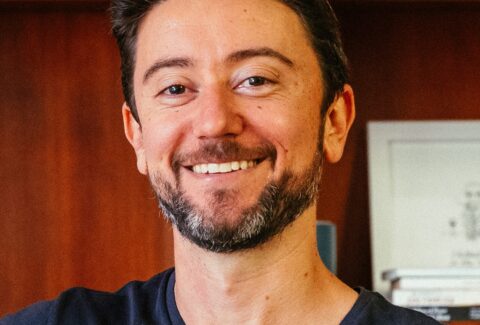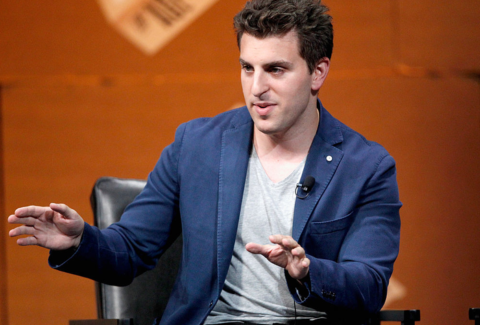Sharing exemplary stories on art and culture
Welcome to the forty-first edition of ‘3-2-1 by Story Rules‘.
A newsletter recommending good examples of storytelling across:
- 3 tweets
- 2 articles, and
- 1 long-form content piece
Let’s dive in.
🐦 3 Tweets of the week

‘Show, don’t tell’ is great writing advice. Easier said than done though!

4 words. Powerful message.

Let’s give credit where it is due.
📄 2 Articles of the week
a. ‘OpenAI Is Still an $86 Billion Nonprofit’ by Matt Levine (Money Stuff newsletter)
Levine’s series on OpenAI is eye-opening and entertaining.
In this post, he brilliantly analyses the likely change in OpenAI’s valuation, after the whole ruckus of Sam Altman’s sacking and reinstatement.
Before the event, the company was valued at $86 billion. After the whole affair would the value have risen or fallen?
Levine makes several arguments for both sides:
So how much should OpenAI be worth today? Some possible answers:
1. Less than $86 billion, for governance reasons: After a rapid rise in prominence and valuation, OpenAI revealed some serious cracks, causing its valuation to become zero dollars for a while, meaning that investors should be far more cautious about it now than they were before. It is more volatile than people thought. The lesson of the last week, I suggested on Tuesday, might be “don’t invest in nonprofits at an $86 billion valuation”; maybe investors will learn that lesson.
2. More than $86 billion, for governance reasons: Those cracks were there from the beginning, and investors presumably accounted for them in that $86 billion valuation. But now that Altman has won his power struggle and cemented his control the future OpenAI will be less weird and nonprofit-y and afraid of its own shadow. It’s the same exciting business but with better, more investor-friendly governance, so it should be worth more to investors.
He then goes on to make eight more arguments in the same vein (‘Less than $86 billion’, ‘More than $86 billion’, ‘less than’, ‘more than’, …) – it is compelling stuff.
b. ‘The return of wars, explained’ by Yuval Noah Harari
(This is a YouTube video)
Just 10 years ago, the Israeli historian, Yuval Noah Harari had written:
…never before has peace been so prevalent that people could not even imagine war in the early 21st century, largely thanks to the global liberal order
And now we have Ukraine, Israel-Palestine, Sudan, and the looming Taiwan conflict. What happened?
In this video, Yuval Harari explains some of the likely drivers of the increase in conflicts across the globe: two key factors being the shift from a unipolar world to a multipolar world, and the rise of populism in countries that are experiencing slowing growth rates.
Harari leaves us with a warning – humanity should not fritter away the gains we have gotten through unprecedented global cooperation:
…we control this planet not because individually we are so smart or so good but because we know how to cooperate better than any other entity on the planet better than chimpanzees or viruses. This is our secret of success. If we forget it on the level of a Nation or on the level of the entire species we will fall into more and more internal and international conflicts.
It’s not just the regional wars in the Middle East. It’s the threat of a third world war. It’s climate change and ecological collapse. It’s the rise of disruptive technologies like Artificial Intelligence. We need global cooperation on that. If we cannot do that then humanity has very little chance of surviving the challenges of the 21st century.
🎧 1 long-form listen of the week
a. ‘The Cultural Tutor: From McDonald’s to Twitter Stardom’ | How I Write Podcast with David Perell (YouTube)
(The link is for the episode’s video on YouTube, but you’ll also find it on your preferred podcast apps like Google Podcasts, Spotify and Apple Podcasts)
The Cultural Tutor (real name – Sheehan Quirke) is one of my favourite accounts on Twitter and one of the reasons why you should be on the platform despite all the negativity.
He publishes high-quality threads on various topics of high-culture – art, architecture, history, literature, poetry, music et al. He imbues these topics with rich context and adorns his threads with some stunning images.
Many of my ‘tweets of the week’ in this newsletter have been from The Cultural Tutor’s work – for instance, this intriguing one on why houses in Amsterdam are very narrow (the answer is very prosaic).
This is perhaps Sheehan’s first detailed interview – by writing tutor, David Perell.
Here are some conversation highlights as shared by David on a LinkedIn post:
1. Don’t read anything published within the past 50 years.
2. You don’t lack ideas, you lack deadlines. By forcing yourself to be creative, you generate better ideas.
3. Be disciplined about your output but loose with your process.
4. You don’t need to be an expert before you start writing; you just need to be curious. You’ll become an expert by writing about what you learn.
5. The best time to write about an idea is when it first strikes you.
That’s all from this week’s edition.
Photo by Vitaliy Lyubezhanin on Unsplash







